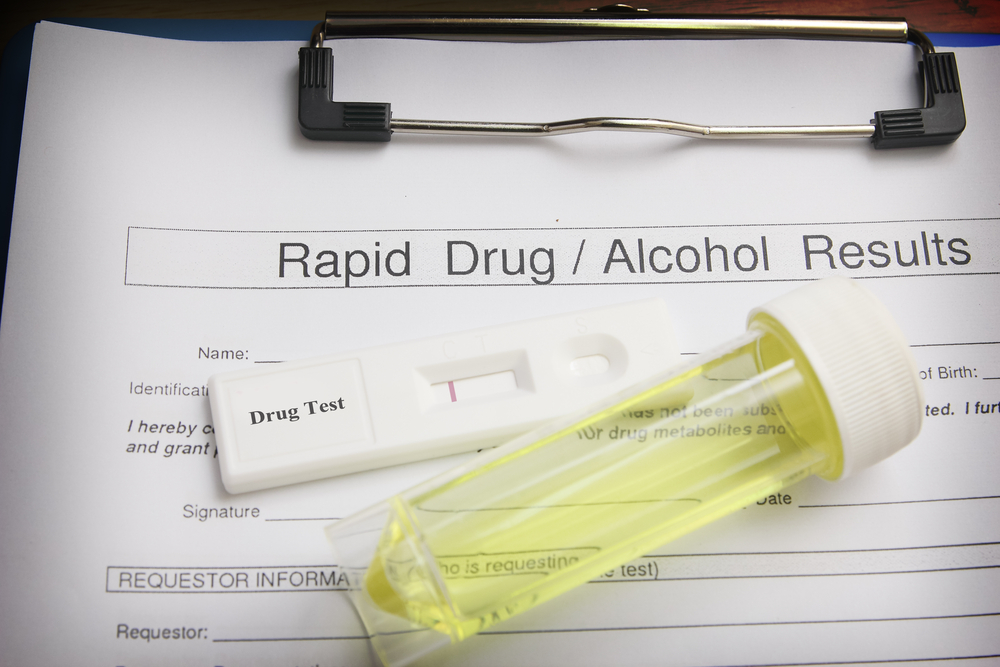How long does Xanax stay in your system?
This depends on many factors such as the amount of Xanax taken and for how long. Always consult a medical professional when using (or abusing) Xanax. It is important to never stop taking Xanax without supervision from a medical professional. Quitting cold turkey could result in some serious negative effects on your brain. In most cases, it is vital to taper off of regular benzodiazepine use.
About Xanax
Xanax is one of the most widely abused drugs. Many users eventually find themselves so heavily addicted that they cannot break the chains of their physical dependency with anything short of an intervention.
Perhaps you are being drug tested, or maybe you are in the process of drug testing a loved one. Maybe you are trying to get through your addiction on your own without the help of a substance abuse treatment center. In any case, it’s important to know about all the different factors in how long Xanax stays in your system. With help, you can get your body and mind clear of Xanax dependency with time and certain beneficial actions.

Elimination of Xanax Half-Life
As previously mentioned, Xanax half-life refers to the period in which half of the substance takes to leave an individual’s body. This process may be different for each Xanax user based upon these four (4) key factors:
How long Xanax stays in your system differs based upon each. However, what is most common is that Xanax takes about 9 – 16 hours to be reduced by 50% in the blood. This process is known as “Xanax half-life elimination.” For Xanax to come out of the system entirely, it takes about four days. However, this is only if you or your loved one has not used any more of the drug after last use.
1. How long does Xanax stay in your system?
The answer to this question is a bit complicated. How long Xanax stays in your system is determined by a variety of factors, including diet, body structure, brain chemistry, and even gender. Since the female metabolism functions quite a bit slower than in men, it will most likely happen slower for women.
Factors on how long Xanax stays in your system
- Age: After a person has reached a certain age, the regular functions of the body begins to slow down. This means that the older you are, then the longer it will take your body to eliminate any foreign substance 100%.
- The overall health of the liver and kidneys: Since drugs and other substances are processed and eliminated by these specific organs, then it is no doubt that they will play a vital role in determining how long Xanax will remain in the body. The healthier the liver and kidneys are, then faster Xanax will be eliminated from the body.
- Body mass: People who are overweight tend to eliminate Xanax from their system quite a bit slower.
- The frequency of use: If you or your loved one takes just one dose of Xanax, chances are, it will be eliminated from your system much faster than an individual who indulges in a binge session and takes each Xanax pill back to back with very little to no dry period in between.
2. What is Xanax?
Xanax is the commercial name for a popular benzodiazepine drug, Alprazolam. Benzodiazepines also referred to in short as “benzos”, are substances that enhance the GABA neurotransmitters in the brain. GABA (Gamma Amino Butyric Acid) is responsible for inhibiting neurotransmitter in the brain. Therefore, benzodiazepines such as Xanax work to slow things down in the brain and body. This class of drugs is also sometimes called “tranquilizer” drugs or “depressants” because they depress the activity in the brain.
For someone who needs Xanax medication, this act of calming things down is necessary. For people who misuse, or even abuse Xanax, though, the improper use of this drug can cause harmful short-term and long-term effects.
Xanax Dosage
Since Xanax is a prescription drug typically used to treat panic and anxiety disorders, there is almost always a recommended dosage. Typical Xanax doses range from 0.25 – 4mg. If someone takes Xanax as prescribed, then the half-life and complete elimination from the body will be faster in that individual, than in a Xanax abuser.
The higher the doses a Xanax user takes, then the more of the substance will have to be eliminated. Users taking higher amounts of the drug may have it in their system for a much longer time than anticipated.
3. How long does Xanax stay in the body?
The longer or more frequent an individual abuses Xanax, then the longer it will take to be eliminated from the system. The frequency of Xanax use among individuals tends to have the user building up tolerance and dependence. As a result, doses and rate of use go up so that the user can once again begin to feel the effects. Tolerance, which builds the more a user takes Xanax, will cause him or her to require a higher dose in order to feel the normal effects they once felt when they first took the drug, to begin with.
4. How long does Xanax stay in your Urine?
Urine tests are among the most commonly administered drug tests since they are not expensive nor do they require invading the space of an individual like other tests do, including blood or saliva tests. Xanax can stay in the urine for as little as four days after last use if the user takes Xanax as prescribed. However, for more frequent and long-term Xanax users or Xanax abusers, it can remain in the urine for as long as seven whole days.
Again, there are different factors to take into consideration when knowing how long this drug will remain in the system. Depending on those factors mentioned earlier in the article, urine drug tests might show different results from person to person.
5. How long does Xanax stay in the Saliva?
If a Xanax saliva drug test takes place, then the individual can test positive for the presence of Xanax for as little as twelve hours and up to 2 and a half days. However, since the presence of Xanax lasts for a shorter period than it does in the urine, then a saliva testing is typically not done.
6. How long does Xanax stay in the blood?
Blood testing for Xanax presence is rarely ever used since Xanax does not remain in the blood for very long. The presence of Xanax in the blood is only detectable for up to 1 day of last use.
7. How long does Xanax stay in Hair?
The presence of Xanax is not typically detectable in the hair until a few weeks after last use. Consequently, if a sample of the hair is taken to be tested for Xanax too soon, it might not show up. Xanax in the hair is detectable for up to 1 month after the user last ingested Xanax. For this reason, the most common drug test for Xanax includes urine testing.
How Long Should You Wait Before Taking a Drug Test for Xanax?
| User | Wait Time |
| Single-use | 24 hours |
| 2-4 times per week (infrequent use) | 3 days |
| Chronic user – daily use | 4-6 weeks |

Xanax Addiction
The anticipation of knowing that you will be taking a drug test sometimes prompts a user to stop using the drug. After the drug test, Xanax addicts will almost always go back to their old habits.
However, stopping Xanax without medical supervision is dangerous. Xanax withdrawals can be intense. Withdrawal from Xanax frequent use can lead to seizures and even death in some extreme instances. Always consult a medical professional if attempting to stop taking Xanax or for help with Xanax addiction.
Obtaining Xanax without a prescription is also illegal. Many abusers of Xanax will often buy Xanax and other similar drugs such as Valium of the street or by manipulating doctors. Some addicts, unfortunately, were once merely patients who wanted medication for chronic anxiety or panic issues. Sometimes, a normal prescription from a doctor can lead to full-blown addiction, if not taken with caution. When someone taking Xanax for medical purposes becomes addicted, he or she may even go so far as to seek out multiple doctors, lie to their physicians, or obtain the drug illegally.
Treatment for Xanax Addiction
Even though Xanax is a medication attainable only through having a legitimate prescription, that does not limit it to being abused at this moment getting an individual addicted.
If you or your family member is addicted to Xanax, first steps to help to cure this addiction disease is often having an intervention held where the loved ones would gather around the addict in a loving and caring setting and persuade him or her to get the help they truly need. If you need help finding a professional interventionist in your area, we can direct you to the right one. Give us a call through our free Addiction Helpline and you can talk to a caring professional. We can also help answer any questions or concerns you may have about treatment, mental health, or addiction in general.
Where to Start with Xanax Addiction?
Xanax addiction is a serious disease, but it can be cured and overcome. The widespread issue of drug addiction can seem quite overwhelming. Maybe you don’t know where to begin exactly. That’s okay, we are here to help you and your loved one if you reach out. Sobriety is possible and there is a way out of longterm addiction to Xanax. Mainly, you must make sure you are ready to get sober and put in the work. You also need to remember the importance of a proper care for detox.
Quitting Xanax without close medical supervision could cause major withdrawal symptoms, seizures, and even death. We always recommend an inpatient drug rehab or medical facilities such as a residential drug rehab or substance abuse treatment center.
In many cases insurance can cover 100% of the cost involved with going into treatment. Getting into treatment doesn’t mean you have to risk your job. It is likely protected under the FMLA, which keeps your information and recovery process confidential. Don’t let any of the excuses hold you back. The time to get sober it right now, so call today and we can help you through the first steps of successful and healthy recovery from drugs.
Related Articles
Inpatient Drug Rehab: The Complete Guide to Finding an Inpatient Drug Rehab
Heroin Addiction Effects and Treatment
What Are the Reasons for Addiction?
Dual Diagnosis: Mental Health and Drug Addiction
Getting Help for Addiction
Why You Need a Recovery Mindset for Rehab
Drug Addictions
Drug Rehab and Substance Abuse Treatment Centers

























